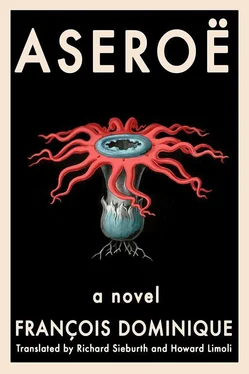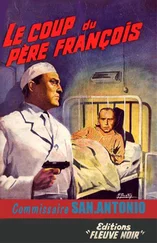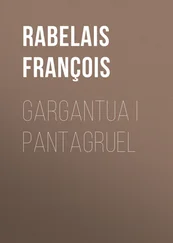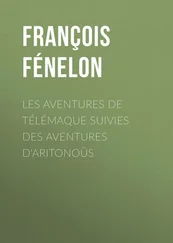François Dominique - Aseroë
Здесь есть возможность читать онлайн «François Dominique - Aseroë» весь текст электронной книги совершенно бесплатно (целиком полную версию без сокращений). В некоторых случаях можно слушать аудио, скачать через торрент в формате fb2 и присутствует краткое содержание. Город: New York, Год выпуска: 2020, ISBN: 2020, Издательство: Bellevue Literary Press, Жанр: Современная проза, на английском языке. Описание произведения, (предисловие) а так же отзывы посетителей доступны на портале библиотеки ЛибКат.
- Название:Aseroë
- Автор:
- Издательство:Bellevue Literary Press
- Жанр:
- Год:2020
- Город:New York
- ISBN:978-1-942658-78-8
- Рейтинг книги:5 / 5. Голосов: 1
-
Избранное:Добавить в избранное
- Отзывы:
-
Ваша оценка:
- 100
- 1
- 2
- 3
- 4
- 5
Aseroë: краткое содержание, описание и аннотация
Предлагаем к чтению аннотацию, описание, краткое содержание или предисловие (зависит от того, что написал сам автор книги «Aseroë»). Если вы не нашли необходимую информацию о книге — напишите в комментариях, мы постараемся отыскать её.
Aseroë — читать онлайн бесплатно полную книгу (весь текст) целиком
Ниже представлен текст книги, разбитый по страницам. Система сохранения места последней прочитанной страницы, позволяет с удобством читать онлайн бесплатно книгу «Aseroë», без необходимости каждый раз заново искать на чём Вы остановились. Поставьте закладку, и сможете в любой момент перейти на страницу, на которой закончили чтение.
Интервал:
Закладка:
I espied an old man, oddly dressed, hunched over, carting around his shopping basket. He was shuffling along quite quickly on his bandy legs. Just a flick of a finger would be enough to topple him over. Then I would courteously come to his aid and pick him up again, casting the blame for my assault on some imaginary passerby. Here was a real challenge, worthy of our times. After which, I would do away with myself—assured of not suffering any consequences.
I was about to proceed as planned but was held back by a ludicrous detail: my intended victim was talking to himself aloud as he shuffled along. I caught up with the poor wretch; when I held out my arm to touch his shoulder, he turned around as if he had sensed me coming all the while and shouted out at the top of his lungs:
“She told me so .”

The old man kept heading toward the market. I followed him as far as the wholesalers’ stalls; a woman, all smiles, hurried toward him to put some vegetables in his basket. The old man just stood there shuffling, without turning his head or uttering a word of thanks. He frowned, all the while casting his eyes down at the ground and up to the sky. Then he was off again. At a butcher’s stall, he shouted the same sentence out aloud—“ SHEETOLDMEESOO ”—and again farther along—“ SHEETOLDMEESOO ”—clearly enunciated, with the same vehemence.
The man moved on at a steady pace, his basket now filled, his shoulders sagging. As he moved along, his feet dragging in their oversize slippers, every twenty or thirty yards he would repeat the same refrain— “SHEETOLDMEESOO.” The passersby watched and grinned. A girl pointed him out to her mother: “Look, Ma, it’s the prophet!” Other people turned around, shot him a glance, and just shrugged. A shopkeeper said to her daughter, “Go give something to the loony!” Again the old man stopped, shuffled in place, frowned, and looked at the ground and into the distance. Then he was off again, shouting out:
“ SHEETOLDMEESOO …”
An idiotic refrain: the reprise of an unknown disaster, the echo of a broken promise, of a grief too grievous to be shared? A caesura? You have nowhere to go and yet here you are shouting, claiming that a woman had said something to you, but what? Admit it, forget it, fill the gap with a random tic, a random gesture, a cry in the night—and transform it into this pathetic, magnificent outburst addressed to nobody in particular in broad daylight. Some children were laughing. I couldn’t blame them. Their easy laughter and his wounded words were two parts of the same poem.
It’s hard to kill yourself, and it’s almost impossible to do so when the time is no longer right. You let yourself be carried along by the painful slippage of days, your memory in disarray—the loss of a wife, the absence of a lover, the disappearance of friends. You get up, you go to bed, you get up again, you put one foot after the other. The litany of pain.
The old man was leaning against a wall, having put his basket down. I approached him and whispered into his ear, “ Aseroë .” Without so much as looking at me, he replied, “Exactly!” He picked up his basket and went on his way. Farther on, before crossing the street, he again shouted out, “ SHEETOLDMEESOO .” Then he shuffled past a school and disappeared, still in search of some ancient promise, now cruelly consigned to oblivion.
8

Aseroë
IT WAS IN APRIL THAT I MET the Japanese choreographer Hideyuki Yano for the first time. I had admired his At the Hawk’s Well , inspired by Yeats. Yano had succeeded in seamlessly blending the mythologies of Japan, Africa, and Europe. This had enchanted me. I loved the balletic duet, River Sumida Madness , that he had composed with the African dancer Elsa Wolliaston.
Yano had come to Dijon for a dance workshop and that spring, engaged as I was in editing a certain book, I found myself at a very low ebb, unable to establish the most simple relationships between words and feelings. I sensed that my language was betraying me. The very act of writing seemed like some nasty ordeal I had to undergo before gaining access to a single clear thought. I had just devoted several days and several nights to the perception of blackness, engaged in what I called my séances noires . Since the eyes tend to become accustomed to darkness, gradually adjusting to all the tiny gleamings it contains, I had prepared several darkrooms, which I had carefully sealed against any intrusions of light. I needed to mislead my sight, to remove it from any known object, to devote it strictly to the apprehension of absolute blackness.
By keeping my eyes open as long as possible, by not allowing my vision to seize on any single point of reference, by losing all notion of time and space in a completely darkened room, I thought that these “black sessions” might allow me to discover thought in its purest—and most perceptible—form. I had no delusions: I didn’t expect to achieve absolute lucidity at the end of each of these voluntary seclusions. To achieve a healthy state of stupefaction would be sufficient. I was fully ready to embrace idiocy, provided it might help me to discover an unknown connection between writing and feeling. I hoped that out of these séances of darkness, words would emerge—vivid words, innocent of any lie, words devoted to the simplest of perceptions, virgin words.
At several points, I tried my hand at writing in total darkness, hoping to seize the moment—which would then immediately disappear, like dreams at the moment of waking. Each time, I had to overcome my body’s stubborn resistance. In the end, I had to recognize that I had failed; in fact, I had even (predictably) regressed, tormented by the amnesia and the anxiety traditionally referred to as la petite mort .
Far from having diminished the separation between perception and writing, I had only increased it. But the fact that I had failed only reinforced my absurd conviction that it was my duty to persevere, to proceed onward without any determined goal in mind. I would solicit the powers of innocence at some other time, and in a different fashion. The pitiful result of this series of self-mortifications was a manuscript about fifty pages in length, which I was cruel enough to submit to several friends. I knew I was putting them in an awkward position: they were, after all, aware that I wasn’t doing very well and therefore wouldn’t dare tell me how they really felt, afraid as they were of hurting my feelings.

When Yano came to Dijon that April, a month had passed since I had finished writing up the sessions of my séances noires and I was ready to forget those pages. However, after lunch, Yano asked me what I was writing, and since he had just mentioned that in his work as a dancer he had always wanted to prolong words into the silence of gestures—to invent, as it were, a danceword —I described to him—without concealing my difficulties nor my ultimate embarrassment—the paltry little adventure to which I had sacrificed so much time. As I was describing my obstinate path to failure, I saw that he was raptly listening. In my retelling of my adventure, a drama was clearly taking shape in his mind—one in which I played no part. I fell silent. The silence lasted a long time; then I heard him softly pronounce the following sentence, as though he were protecting an invalid:
Читать дальшеИнтервал:
Закладка:
Похожие книги на «Aseroë»
Представляем Вашему вниманию похожие книги на «Aseroë» списком для выбора. Мы отобрали схожую по названию и смыслу литературу в надежде предоставить читателям больше вариантов отыскать новые, интересные, ещё непрочитанные произведения.
Обсуждение, отзывы о книге «Aseroë» и просто собственные мнения читателей. Оставьте ваши комментарии, напишите, что Вы думаете о произведении, его смысле или главных героях. Укажите что конкретно понравилось, а что нет, и почему Вы так считаете.












